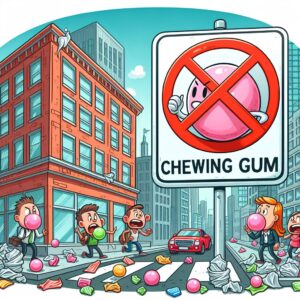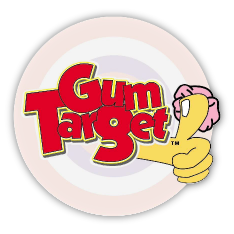Pros of Implementing Gum Bans
The most immediate benefit of enacting a gum ban is the substantial reduction in litter. With the absence of gum sales, the source of gum waste, notoriously difficult to clean and remove from public spaces, is eliminated. This approach contributes to the overall cleanliness and hygiene of public areas, making them more welcoming and pleasant for residents and visitors alike.
By restricting gum sales, a significant amount of synthetic waste can be prevented from entering the environment. This action supports broader environmental conservation efforts, aiding in the reduction of plastic pollutants that harm wildlife and ecosystems. It aligns with global initiatives aimed at reducing plastic usage and encouraging more sustainable living practices.
Cities spend considerable resources annually on cleaning efforts to remove gum from sidewalks, park benches, and other public spaces. These operations require specialized equipment and are labor-intensive and costly. A ban on gum sales could lead to substantial long-term savings for municipalities. The funds typically allocated for cleanup efforts could then be redirected to other important community services or infrastructure improvements, benefiting the broader public.
The presence of gum litter can detract from the overall quality of urban environments, affecting people’s perceptions and experiences of shared spaces. Eliminating this source of litter, communities can enjoy cleaner, more attractive public areas that foster a sense of pride and well-being among residents and enhance the experience of visitors.
Chewing gum litter poses a hygiene risk, with used gum acting as a carrier for bacteria and germs. In densely populated urban settings or during health crises, reducing such litter can contribute to broader public health initiatives aiming to minimize the spread of contaminants and diseases.
Cons of Gum Bans
 Monitoring and policing the sale and possession of chewing gum would require substantial resources. There would need to be a system in place to track sales, which could be both invasive and bureaucratically cumbersome. The potential for a black market for chewing gum to emerge cannot be overlooked. This could inadvertently lead to additional law enforcement issues, diverting attention and resources from more necessary community needs.
Monitoring and policing the sale and possession of chewing gum would require substantial resources. There would need to be a system in place to track sales, which could be both invasive and bureaucratically cumbersome. The potential for a black market for chewing gum to emerge cannot be overlooked. This could inadvertently lead to additional law enforcement issues, diverting attention and resources from more necessary community needs.
Small businesses often rely on the sale of small-ticket items, including chewing gum, to maintain steady revenue streams. A ban on gum sales could disproportionately affect these businesses, potentially leading to reduced foot traffic and loss of income. In communities where small businesses are the core of the local economy, this could have wider economic repercussions, potentially impacting employment and community services funded through local taxes.
Imposing a ban on chewing gum sales represents a significant imposition on personal freedom and consumer choice. Many people use chewing gum for various reasons, including dental health benefits, as an aid to quit smoking, or simply as a low-calorie snack. Removing this option from the marketplace limits consumer choices and can be seen as an overreach by the government into personal habits and preferences.
Given the role of chewing gum in many people’s daily lives, a ban could lead to substantial public pushback. This opposition would manifest through formal channels, such as protests or petitions, and through non-compliance. The public’s resistance to the ban could create a contentious atmosphere, straining relations between the community and policymakers. Effective policy requires public buy-in, and a ban that is widely unpopular risks undermining trust in government decisions more broadly.
Many manufacturers have begun to explore and develop biodegradable and environmentally friendly alternatives to traditional synthetic gum. A blanket ban could remove the incentive for continued research and development in this area, potentially halting progress toward more sustainable options that could mitigate environmental concerns without necessitating a ban.
Alternatives to Banning Gum Sales
Implementing comprehensive education campaigns that highlight the environmental impact of improperly disposed of gum, individuals can be encouraged to change their littering habits. These campaigns can utilize various media platforms to reach a wide audience, emphasizing the importance of responsible gum disposal and showcasing the long-term benefits of such practices to the community and the environment.
Investing in the development and promotion of biodegradable gum alternatives can offer a direct solution to the environmental concerns associated with gum litter. Encouraging gum manufacturers to explore and utilize organic, non-synthetic ingredients that decompose naturally can significantly reduce gum’s longevity in the environment. Government incentives for companies developing such products, alongside consumer awareness campaigns about these alternatives, can shift market preferences toward more sustainable options.
Improving the infrastructure for gum disposal can greatly reduce the incidence of gum litter. This can include the installation of more specialized gum-disposal bins in high-traffic areas and public spaces, accompanied by clear signage prompting proper disposal. Such targeted infrastructure improvements, coupled with public education efforts, can create a conducive environment for responsible gum disposal, alleviating the litter problem without imposing bans.
Establishing a system of fines for littering, specifically including gum litter, can act as a deterrent to irresponsible disposal behaviors. While enforcement can be challenging, the existence of such fines, along with periodic enforcement drives, can raise public awareness about the seriousness of the issue. This approach requires careful implementation to ensure fairness and effectiveness but can contribute to a broader culture of environmental responsibility.
Engaging the community through programs that involve them in cleaning efforts or in initiatives designed to keep public spaces clean can foster a collective sense of responsibility toward maintaining a clean environment. Participating in cleanup drives, educational workshops, and awareness campaigns, community members can better understand the impacts of gum litter and become advocates for proper disposal practices within their networks.
While a ban could directly address the litter issue, its feasibility, impact on freedom, and economic consequences must be considered. Alternatives that focus on education, innovation, and infrastructure offer promising ways to tackle the problem without resorting to outright prohibition. The effectiveness of a gum ban or any alternative measure depends on collective effort and responsibility. Addressing the issue of gum litter requires everyone to stick together for sustainable solutions that keep our cities clean and our consciences clear.



